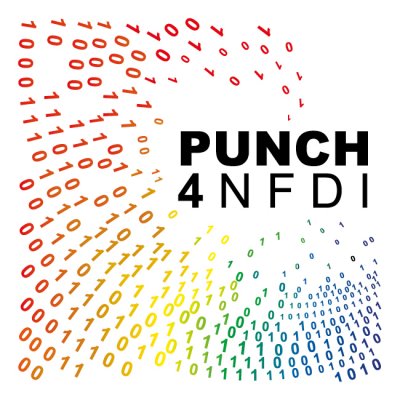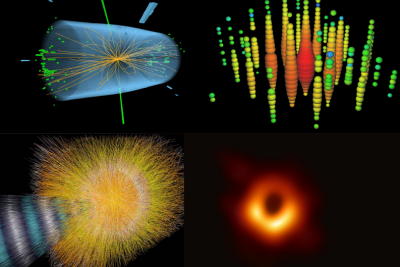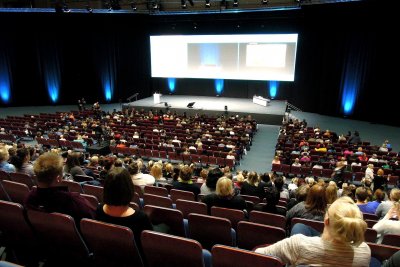PUNCH4NFDI - Particles, Universe, NuClei, and Hadrons for the NFDI

The Project
The consortium PUNCH4NFDI (Particles, Universe, NuClei, and Hadrons for the NFDI) was funded based on the National Research Data Infrastructure (German acronym: NFDI) for five years, initially. The aim is to organize the data from many experiments in particle, astroparticle, hadron, and nuclear physics in a "sustainable" way in many aspects. One big goal is to make new experimental data from these research areas available - within the principles of "FAIR" data management. Here, "FAIR" stands for Findable, Accessible, Interoperable, and reusable, f.e. the corresponding data sets should be easy to find, easily accessible, linkable, and reusable.

This task is tough because future experiments from the PUNCH field will process a multiple of previous data volumes, while the technical requirements for processing will grow significantly at higher data rates. Thus, many future experiments will have to make more complex decisions on much shorter time scales and use computing resources more effectively.
The PUNCH consortium is organized into several task areas. They are key to effective collaboration within the consortium and with other consortia within the NFDI. In addition to the grant applicant DESY, FIAS and 18 other funding recipients are part of the PUNCH4NFDI consortium. In addition, it includes 22 partners from the Helmholtz Association, the Max Planck Society, the Leibniz Association, and universities, such as Goethe University.
PUNCH4NFDI WebpageAt FIAS, one focus of Prof. Dr. Lindenstruth's research group has long been to develop parallel processor systems and computer clusters. Such systems are often subject to high real-time and reliability requirements. Now, this expertise will be part of the consortium's task area 5 "Data Irreversibility". Led by PD Dr. Andreas Redelbach, a scientist working at FIAS, and Prof. Dr. Michael Kramer from the Max Planck Institute for Radio Astronomy in Bonn, the aim is to recognize patterns in detector data under real-time requirements. Ideally, only data of "interest" will be stored permanently. Thus, a most efficient data selection under optimal hardware usage also implements forward-looking concepts of Green IT.
In addition, since September 2021, FIAS has been a member of the non-profit association NFDI e.V., dedicated to the promotion of science through a National Research Data Infrastructure, which establishes and further develops an overarching research data management in Germany.
At the end of the first funding period in fall 2026, there is the possibility of further funding for NFDI consortia to exploit the potential of as much research data as possible in the long term.


